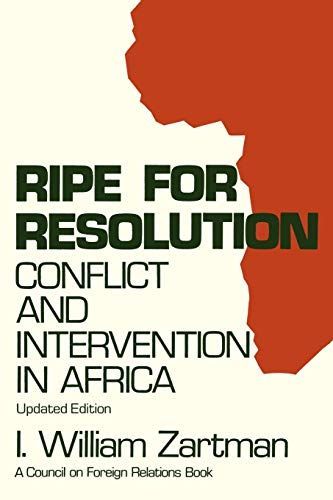
Ripe for Resolution Conflict and Intervention in Africa
What causes local conflict in Africa and the rest of the Third World? What role, if any, can the U.S. play in helping to resolve these conflicts, and when is the time ripe for a response by an external power? This study, written by an internationally renowned Africanist and undertaken as part of the Africa Project of the Council on Foreign Relations, examines the causes and nature of African conflict and addresses the issue of how foreign powers can contribute productively to the management and resolution of such conflicts without resorting to the use of military force. Completely revised to incorporate up-to-the-minute information, the book focuses on four case studies of local conflict and external response--in the Western Sahara, the Horn of Africa, the Shaba province in Zaire, and Namibia--to assess various approaches to conflict management, and offers guidelines for identifying the critical moment for effective external response. The updated paper edition shows how the recommendations offered for conflict resoultion in the first edition have come to fruition, perhaps most dramatically with the recent withdrawal of Cuban troops from Angola. Zartman also evaluates U.S. policy toward Third World conflict and spells out a policy toward Africa and the Third World in general that is based on preemptive treatment rather than military intervention.